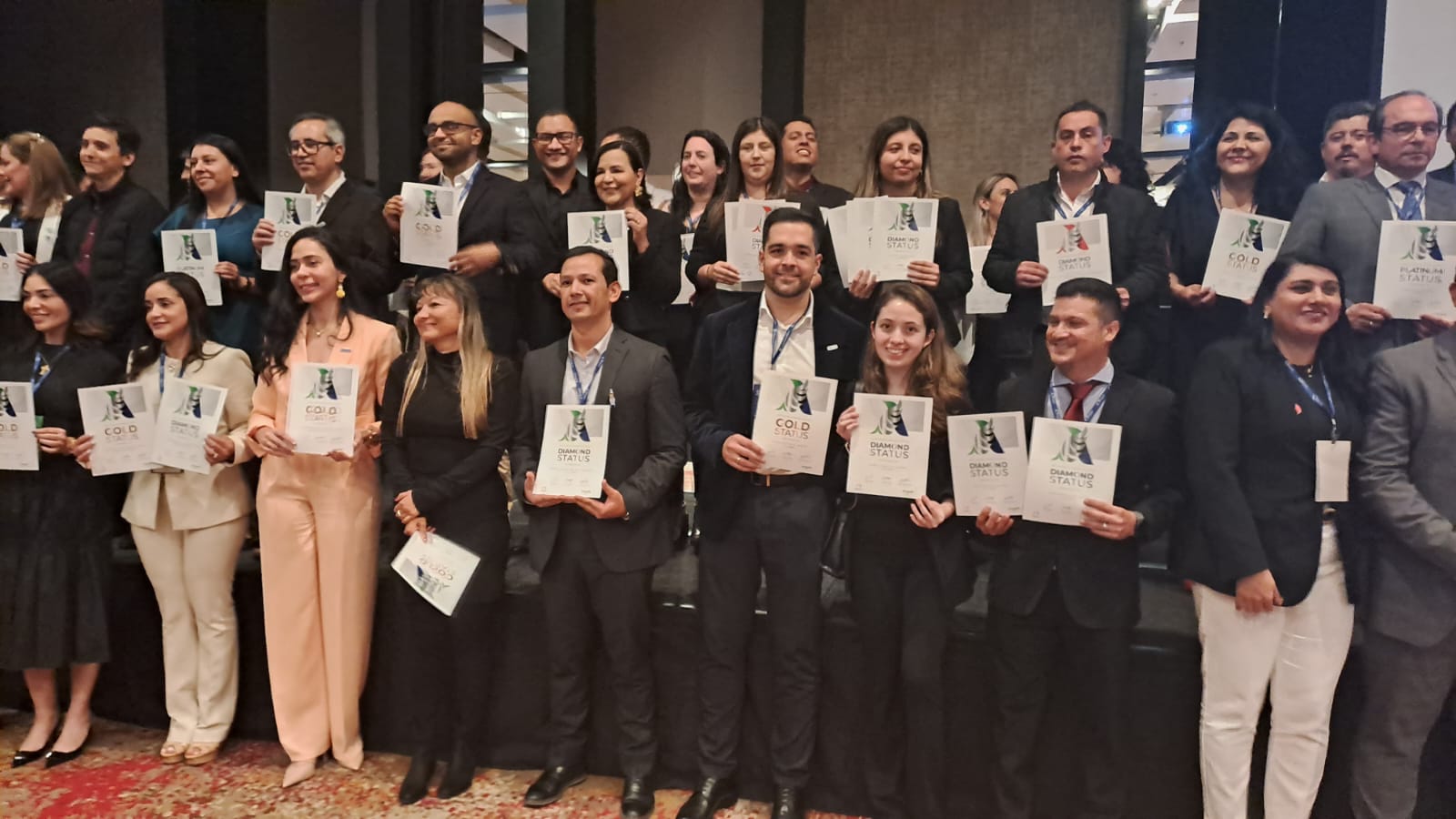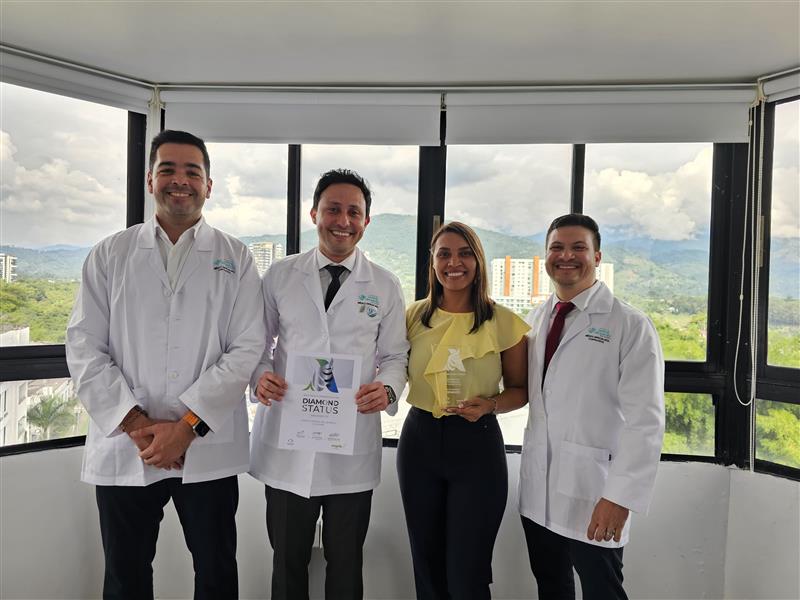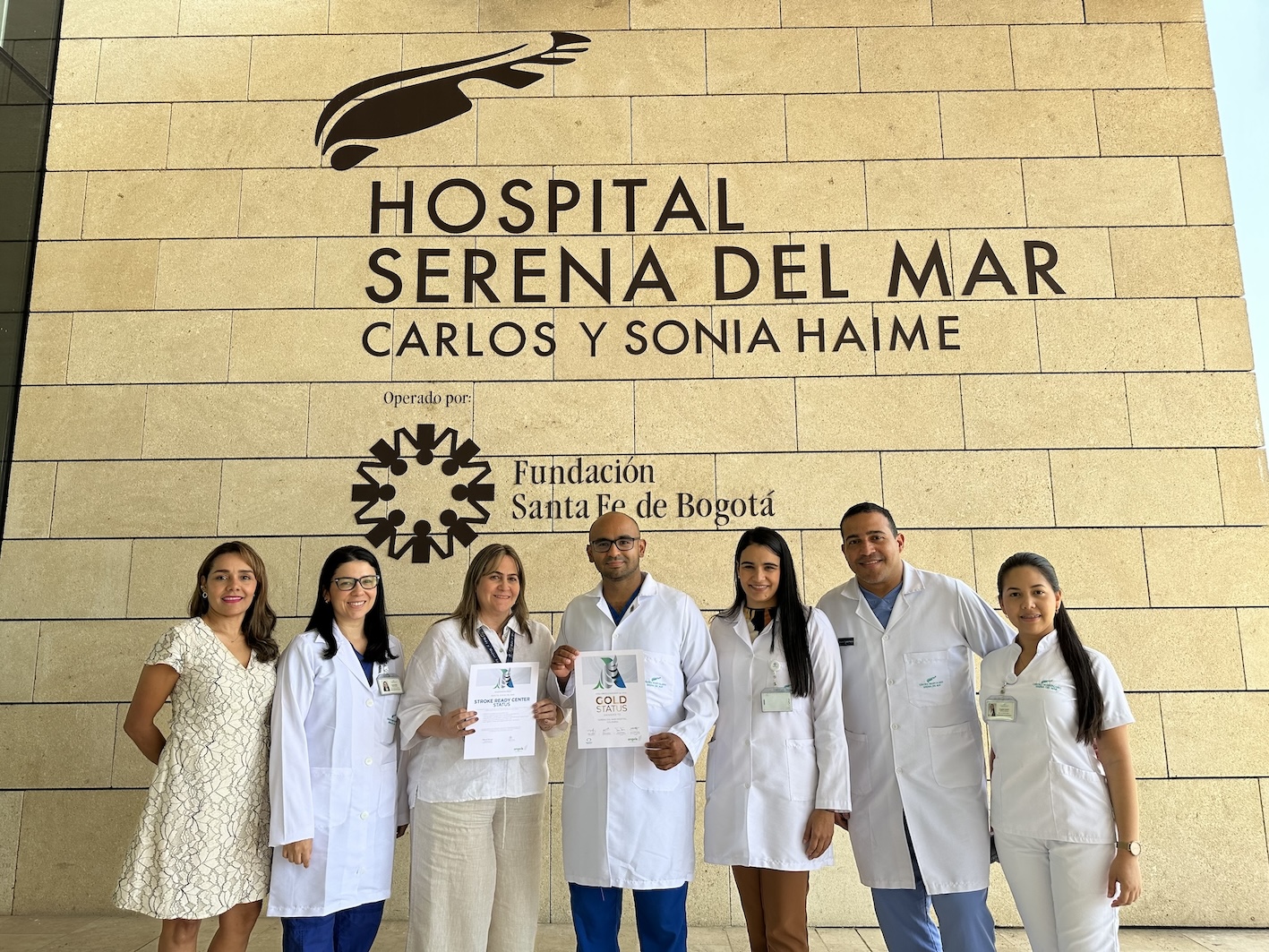Коли колишній колега зазнав інсульт та вчасно не отримував лікування, це був поворотний момент для лікарні Круз Роджі в Кордобі. Їхня подорож до приєднання до мережі інсульт у своєму регіоні розпочалася з дзвінка консультант Angels Алісії Арджоні...
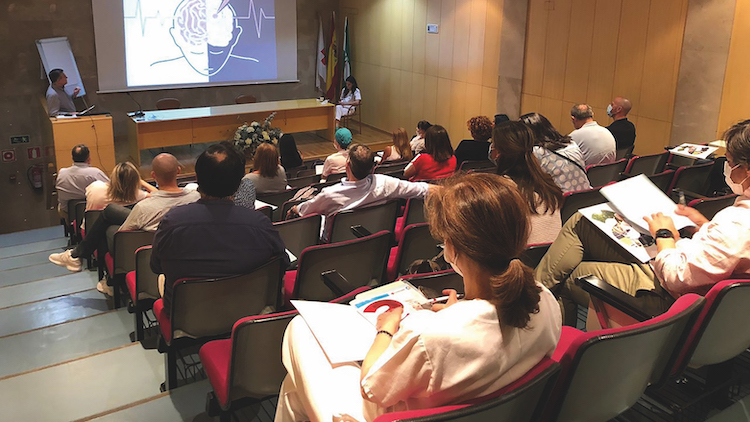
Робота в лікарні означає , що ви щодня відвідуєте пацієнтів з усіма симптомами та розладами. Пандемія призвела до ще більшої кількості пацієнтів, багато з яких не могли бути збережені. Але що робити, якщо пацієнт приходить до лікарні з особливим типом інсульт? А якщо ваша лікарня не обладнана для діагностики та ефективної роботи з такими пацієнтами?
Навіть гірше, що робити, якщо це пацієнт, кого ви знаєте особисто, наприклад, колега? Чи порушить цей досвід ваш дух або мотивує вас до змін? У випадку лікарні Круз Роджа в Кордобі (ГККД) цей досвід призвів до нового початку.
Нещодавно виведений лікар з лікарні прийшов до пункту невідкладний стан, повідомляючи, що він погано почувався протягом декількох годин. Лікарі припускають помилкові симптоми вертиго, поширений інсульт імітують і пов'язані з його попереднім анамнезом фібриляція передсердь. Він залишався в лікарні для спостереження та догляду. Пізніше він впав, намагаючись ходити, і вирішив відвезти його до Кабінет КТ і виявити інфаркт головного мозку. До того часу, на жаль, було занадто пізно робити щось проти його інсульт.
Алгоритм дій на випадок інсульту в Кордобі та у всіх відділеннях Андалузії визначає, що інсульти лікуються в державних лікарнях, які входять до інсультної мережі. У Кордобі є одна з таких лікарень — комплексний центр, і якщо до будь-якої з інших лікарень міста доставляють пацієнта з підозрою на інсульт, вони надсилають результати КТ-сканування до цього центру для отримання подальших інструкцій та транспортування пацієнта.
Але Кордоба — це велике місто зі значним населенням, яке має лише один інсультний центр. Ось чому, незважаючи на перебування в середині пандемії, керівник відділу інтенсивної терапії доктора Ноелії Муноз та керівника неврологічного відділення доктора Роберто Вальверде з ГККД вирішили почати лікування пацієнтів з інсульт та запровадити офіційний код інсульт.
Вони запросили Алісію Архона, яка є консультантом Angels, відповідальним за роботу в регіоні, до обговорення рішень та подальших кроків, які слід впровадити у свої протоколи. Потім вони зібрали весь персонал лікарні, незалежно від його функціональних обов'язків, щоб оголосити мету — коли прибуде нова група пацієнтів, кожен повинен мати необхідну інформацію для того, щоб розпізнати інсульт та знати, як діяти.
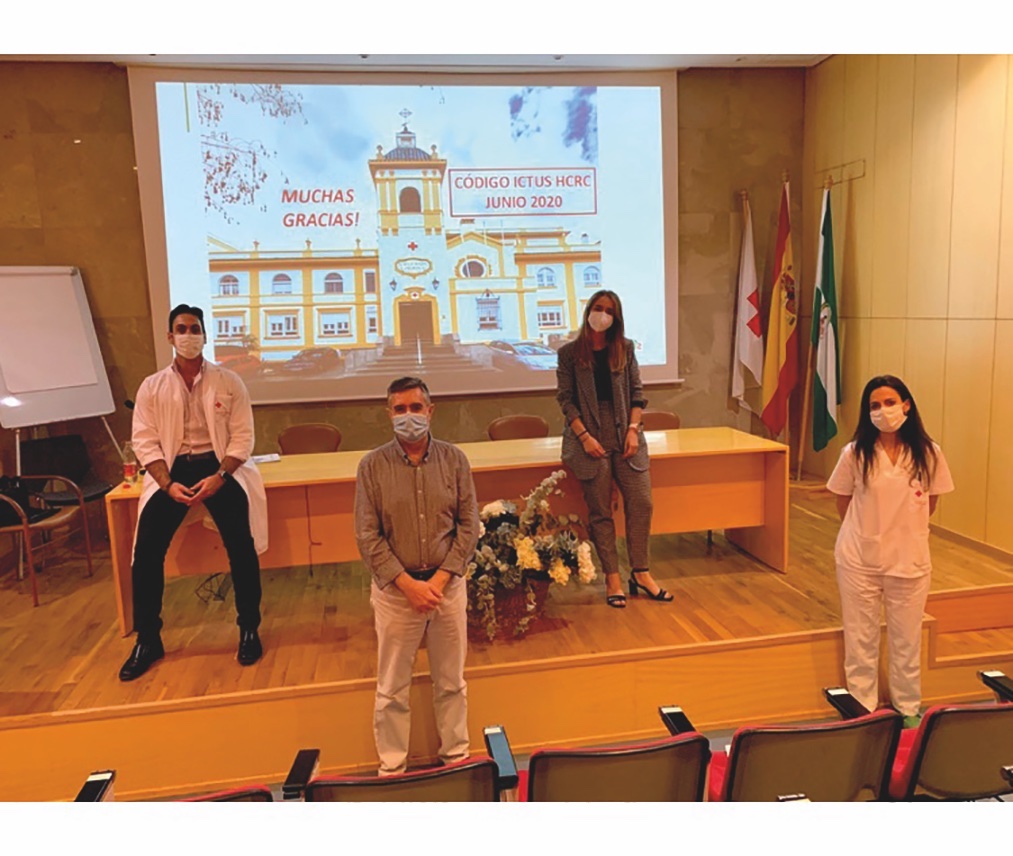 Створено багатопрофільну робочу групу під назвою Brain Team. «Вони дійсно розуміли силу командної роботи в інсультний догляд, — говорить Алісія Арджона. — Вони включили всіх у лікарню в розвиток шляху інсульт та тренінгів. — І команда працювала, щоб зрозуміти, що вони є важливою частиною цієї подорожі».
Створено багатопрофільну робочу групу під назвою Brain Team. «Вони дійсно розуміли силу командної роботи в інсультний догляд, — говорить Алісія Арджона. — Вони включили всіх у лікарню в розвиток шляху інсульт та тренінгів. — І команда працювала, щоб зрозуміти, що вони є важливою частиною цієї подорожі».
Команда розробила дух покращення та співпраці. Доктор Муноз і д-р Вальверде ретельно організували тренінги, які могли б стосуватися всіх, не порушуючи жодних правил гігієни та соціальної дистанції.
Протягом декількох днів у травні вони навчили персонал правильному перебуванню, гіпергострій фазі, неврологічній оцінка NIHSS та найкращій практиці в післягострому догляді. Вони вибрали складну мету 25-хвилинного «час від дверей до голки»; були розміщені плакати з Гельсінком для запису даних, а використання контрольних списків було встановлено в рамках протоколу.
Працюючи з Angels, вони також провели моделювання, що складаються з двох різних сценаріїв: пацієнта з Covid-19-negative, який залучив ЕМД, та пацієнт із інсультом з підозрою на Covid-19-suspected, який прибув до лікарні самостійно.пацієнт із інсультом
До травня цього року лікарня Круз Роджа вже успішно пролікувала перших 10 пацієнтів з гострий інсульт. Лікування відбувається в Кабінет КТ, коли пакет для удару готовий, і вся інсультна бригада регулярно проводить зустрічі з моніторингу якості для виявлення бар’єрів і продовження вдосконалення.
Пацієнти з інсультом досі госпіталізуються у відділення інтенсивної терапії, оскільки кількість пацієнтів з інфекцією Covid-19 не дозволяє виділити їм ліжка у спеціалізованому інсультному відділенні. Однак, це залишається їхньою метою, яку вони готові реалізувати, як тільки пандемія дозволить це зробити.
Було не лише зміцнено зв'язки між переносниками лікарні, лікарями з розвитку працівників, лікарями у відділеннях інтенсивної терапії, ЕМД та медицини, медсестрами, неврологами, адміністраторами даних пацієнт та радіологами в інтересах кращих результатів для пацієнтів з інсульт; лікарня також прийняла ідеологію Angels та розуміє важливість спільноти. Ділячись своєю історія, вони хочуть дати іншим впевненість у ставленні до пацієнтів, які інсульт, і заохотити їх дотримуватися своїх кроків.
Доктор Ноелія Муньос каже: «Angels впровадженню культурних змін, доки хороше не стане кращим і не стане кращим. Ланцюг настільки ж міцний, як і його найслабший зв'язок... ланцюг лікування та лікування пацієнтів із інсульт у лікарні.
«Ми настійно віримо в ланцюг виживання: Це низка дій, які належним чином виконуються, зменшують смертність, пов’язану з цими втручаннями, чутливими до часу. Його необхідно максимально збільшити та оптимізувати, тому в це виживання також включена якість життя.
«Ми дякуємо пацієнтам за уроки щоденного життя. Це був пацієнт із інсультом, який дав нам можливість змінити наше життя, більше ніж ми врятували пацієнт із інсультом. Ми зараз беремо участь у цьому дивовижному проекті через нього [пацієнт]».

